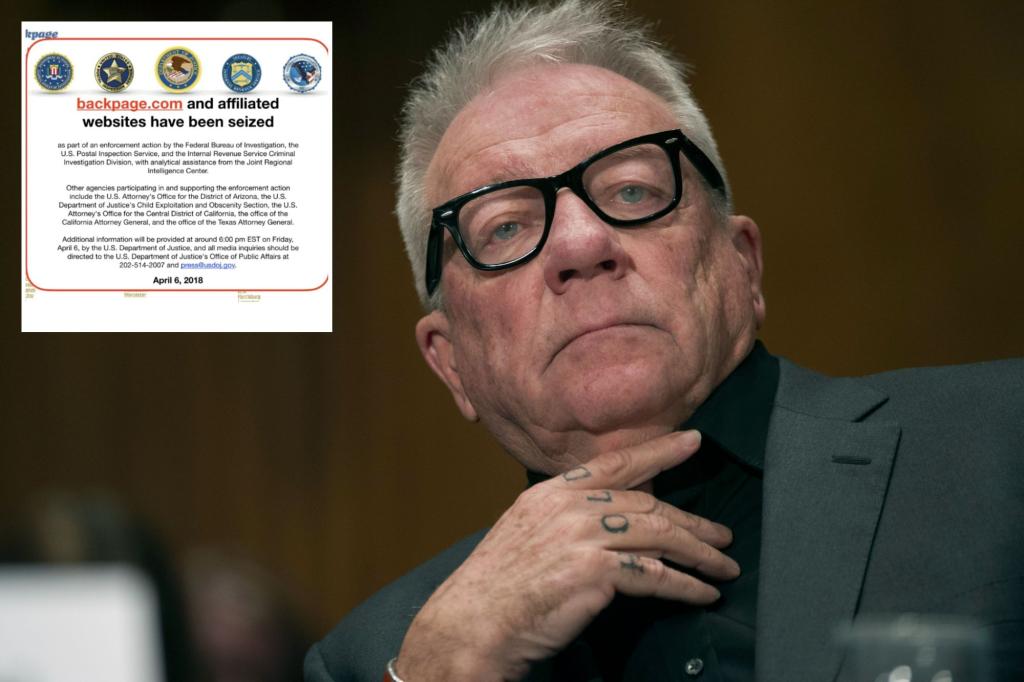Michael Lacey, a founder of Backpage.com, was sentenced to five years in prison and fined $3 million for money laundering charges related to allegations of promoting and profiting from prostitution through the classified site. A jury convicted Lacey of international concealment money laundering, but he still faces additional charges of prostitution facilitation and money laundering. Backpage generated $500 million in prostitution-related revenue from 2004 until it was shut down by the government in 2018. Lacey’s lawyers claim he was not involved in day-to-day operations of Backpage, but Judge Diane Humetewa accused him of being aware of the allegations and doing nothing.
Two other Backpage executives, John Brunst and Scott Spear, were convicted and sentenced to 10 years in prison. Prosecutors argued that the defendants were motivated by greed and misled anti-trafficking organizations and law enforcement officials about Backpage’s true nature. Lacey allegedly used cryptocurrency and foreign bank accounts to launder revenues from ad sales after banks raised concerns about illegal activities. Backpage employees allegedly identified prostitutes through Google searches, offered free ads, and placed ads on other sites where customers could review their experiences with prostitutes.
Backpage’s marketing director pleaded guilty to conspiring to facilitate prostitution, admitting to giving free ads to prostitutes to attract their business. The CEO of the company, Carl Ferrer, also pleaded guilty to federal conspiracy charges in Arizona and state money laundering charges in California. Two other Backpage employees were acquitted of charges during the trial. Backpage defendants were not allowed to present a 2013 memo by federal prosecutors stating that they found no evidence of recklessness towards minors or admissions of the site being used for prostitution. The memo also mentioned Backpage’s efforts to prevent criminal conduct and collaborations with law enforcement agencies.
The prosecutors claimed that Lacey, Brunst, and Spear promoted prostitution under the guise of running a legitimate classified business. Lacey’s lawyer stated that his client was focused on an alternative newspaper chain and not involved in Backpage’s illegal activities. Humetewa criticized Lacey for not taking action despite knowing about the allegations against Backpage. Authorities accused the defendants of using various methods to launder revenues, including cryptocurrency and wiring money to foreign accounts. Backpage employees allegedly engaged in schemes to offer free ads to prostitutes and place ads on other sites to facilitate prostitution.
Backpage employees reportedly identified potential prostitutes through Google searches and offered free ads to attract them to the site. The site’s marketing director acknowledged participating in giving free ads to prostitutes to win over their business. Despite the efforts made by Backpage to prevent criminal activities on the site, prosecutors accused the defendants of promoting prostitution and misleading law enforcement officials and anti-trafficking organizations. The trial resulted in convictions for Lacey, Brunst, and Spear, while other employees were acquitted of charges. The sentencing for the defendants included prison terms and fines for their involvement in the illegal activities related to Backpage.


